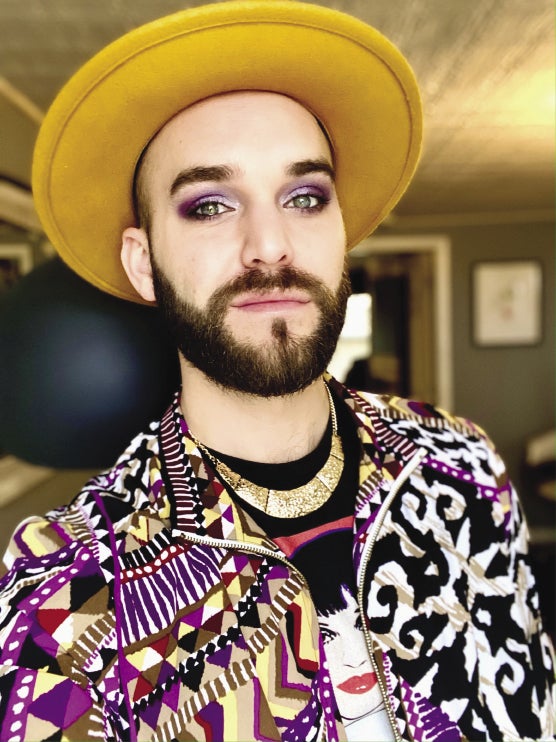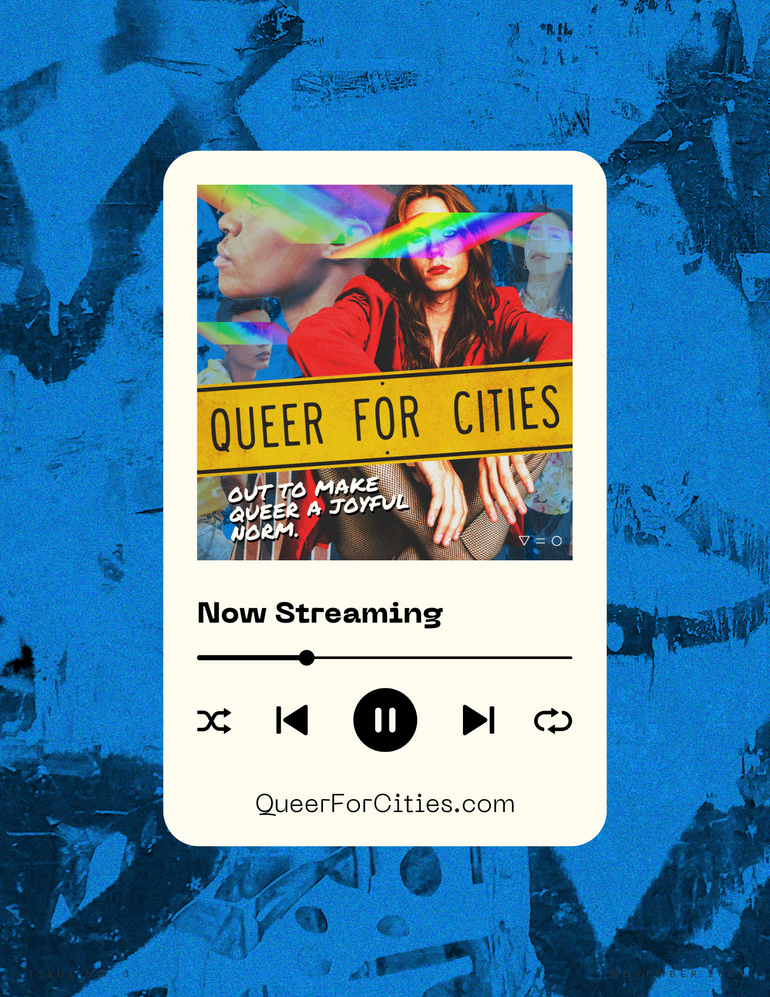Queer For Cities, a new podcast created and hosted by Worcester’s Joshua Croke, looks to make queer a joyful norm—but not in the way you might be thinking.
“When I say ‘norm’, I don’t mean ‘same’, I very much mean ‘norm’ as in we can exist in the world safely,” said Croke. “Making queer a joyful norm to me means that we can be with who we want, wear what we want, and exist publicly in space safely.”

Queer For Cities is the latest venture of Croke, who is already well-established in the Greater Worcester community where they are co-founder and president of Love Your Labels, a nonprofit supporting LGBTQ+ individuals, and founder of Action! by Design, an equity-centered consulting studio in addition to their work as a transformative development initiative fellow at MassDevelopment’s Springfield office.
Released every other week, their new podcast will feature conversations with queer and trans folks across an array of workforce industries, discussing the significance and processes of creating inclusive urban spaces and environments.
“What is public space for, if not for the public and for being able to exist queerly and openly in the public and what that looks like?” said Croke. “So this show is really this intersection of exploration around how do our identities intersect with the built environment?”
Emphasizing the importance of finding guests beyond their immediate network cohort, Croke has been doing a lot of research, emailing, and outreach to find queer and trans guests for the podcast within industries where guests’ identities are not necessarily readily apparent. Listeners can expect to hear the thoughts and expertise from professionals including artists, urbanists, architects, and activists.
“I don’t want [the show] to skew our perspective because of me reaching at arm’s length to the folks that I have connection to. So we’ve been really dedicated about holding a balance of my personal contacts and tapping into new relationships.”
Building spaces in which we move and live outside of a white patriarchal perspective is paramount for Croke. They said the archaic vision of a single-family home with a yard, driveway, and car is still at the center of how officials often design our neighborhoods, and Croke notes that not only is that image and lifestyle not accessible for everyone, it’s not inherently everyone’s ideal to begin with.
“There’s so much intentionality behind the way we build our cities through zoning policy to the type of development people are looking to build, that has been exclusionary of queer and trans folks, of BIPOC folks, of disabled folks. So this show’s really looking at uplifting and centering the intersections of identity—primarily, identities that have been marginalized.”
Intentionality is an evident pillar for Queer For Cities. With this new platform, Croke aims to amplify the needs of those systematically disenfranchised and overlooked when discussing ways urban spaces can be planned and retrofitted to meet the needs of our communities; from affordable housing to functioning and accessible public transportation, inclusivity reigns supreme.
Croke said they hope the podcast can act as a resource for those in positions of power and those in general looking to create equitable spaces.
“I hope someone tunes in because they’re an urban planner, who might also happen to be queer, who might not necessarily be thinking about the needs to really shift how we think about zoning and single family development when we’re in a housing crisis, and really need to be a bit more innovative and forward thinking about how we allow our communities to build space that’s based on need and based on a diversity of ways that people all right.”
Through traveling to meet their guests for Queer For Cities, Croke has noticed that it’s often in the smaller, more casual interactions that occur before and after a recording that can be more profound than they had anticipated. As a result, they’ve started going into some of their interviews recording from the get-go, catching those introductions and little moments that would have otherwise been missed.
“Because sometimes we talk about things that I’m like, ‘Oh, of course, I didn’t think to ask that question, but now we’re just chit chatting and this is something that I absolutely want to center in the show.’”
Croke said that their goal of acting as a resource is local to Worcester, but has also turned into a regional aspiration. As they’ve been traveling throughout different New England taping Queer For Cities, they’ve noticed very similar challenges throughout different cities in regards to inclusive city planning.
“Not all the solutions are going to be the same, but if we were better networked as queer and trans folks across the region, across New England, we have so much more opportunity to move, change, [and] work, maybe faster, or maybe more intentionally, or maybe more impactfully because we have folks who are doing similar work in their own city.”
Queer For Cities can be found on digital podcast platforms and airs every other week at 6 p.m. on Wednesdays and 11 p.m. on Sundays on 90.5 WICN Public Radio.

